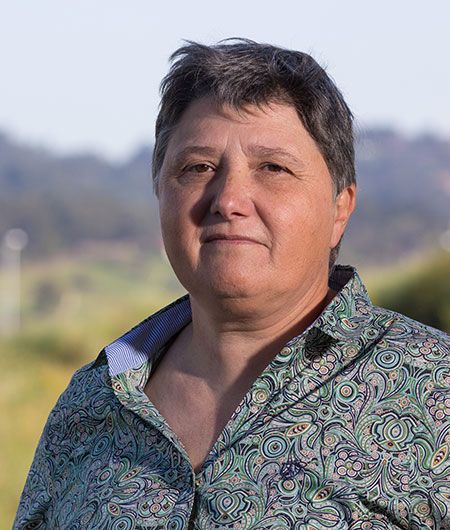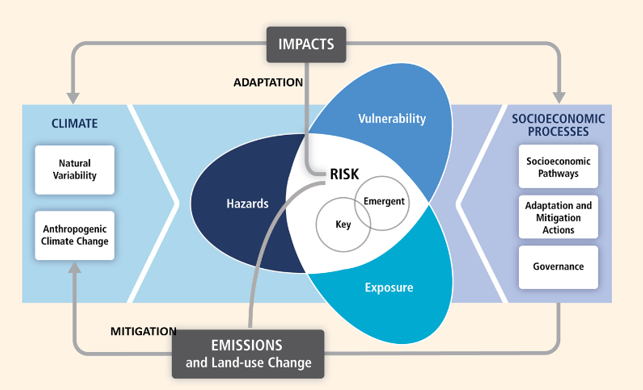Foreword by the BC3 Scientific Director: Prof. Maria José Sanz Sánchez
 As recognized globally by the 2015 Agreement of the UNFCCC, known as the Paris Agreement, climate change represents one of the greatest environmental, social and economic threats humanity has ever faced. Its long-term nature, the uncertainty about future impacts, and the ethical responsibilities associated with the unequal distribution of its causes and consequences, as well as the different capacities to address it across societies, will make decisions by policy makers very challenging in the coming years. Private and public sectors, including governments, corporations and civil society, will have to choose between many, intertwined but often conflicting, priorities and objectives (economic, social, cultural, security etc.) to which climate change adds even more complexity and uncertainty. So far, research has played an important role showing the current and future implications of global warming due to greenhouse gas (GHG) emissions and other interrelated global environmental problems (e.g., deforestation, biodiversity loss, ocean acidification, water and air pollution, etc.). Now, following the Paris Agreement, the challenge is not just to raise awareness of the direct consequences of climate change, but also to contribute with science to find suitable solutions, as well as to help with the design and implementation of policies that can lead to sustainability.
As recognized globally by the 2015 Agreement of the UNFCCC, known as the Paris Agreement, climate change represents one of the greatest environmental, social and economic threats humanity has ever faced. Its long-term nature, the uncertainty about future impacts, and the ethical responsibilities associated with the unequal distribution of its causes and consequences, as well as the different capacities to address it across societies, will make decisions by policy makers very challenging in the coming years. Private and public sectors, including governments, corporations and civil society, will have to choose between many, intertwined but often conflicting, priorities and objectives (economic, social, cultural, security etc.) to which climate change adds even more complexity and uncertainty. So far, research has played an important role showing the current and future implications of global warming due to greenhouse gas (GHG) emissions and other interrelated global environmental problems (e.g., deforestation, biodiversity loss, ocean acidification, water and air pollution, etc.). Now, following the Paris Agreement, the challenge is not just to raise awareness of the direct consequences of climate change, but also to contribute with science to find suitable solutions, as well as to help with the design and implementation of policies that can lead to sustainability.
In the context laid out above, despite continuing to increase our knowledge of the climate system and its responses to anthropogenic changes and natural variability, the key issue is to create innovative approaches to help decision makers, by proposing and supporting the testing and demonstration of scalable solutions, and providing the basis for evaluating the impact and effectiveness of different policy measures. Experience on the ground so far clearly indicates that local values and contexts matter, and that potential top-down solutions need to be matched with a diversity of bottom-up approaches across sectors to achieve cost-effective and fair solutions. This implies that all levels of governance (local, regional national and International) need to be closely involved in acting in the face of climate change while better integrating the efforts by public and private sectors as well as by civil society in general. Since its inception in 2008, BC3 has aimed at achieving excellence in research on core aspects of climate change, related to its physical, ecological to the socio-economic aspects.

A key rationale for the creation of BC3 about a decade ago was the idea that the science-policy interface on climate change required stronger integration between physical studies and socio-economic analysis. The existence of such a gap is now widely accepted. For instance, the Fifth Assessment Report (2014) of the Intergovernmental Panel on Climate Change (IPCC) puts greater emphasis than previous reports on assessing and connecting the socio-economic aspects of climate change and their implications for sustainable development (Fig. 1.1.1.). Furthermore, the IPCC’s sixth cycle of assessment becomes an opportunity for the scientific community to provide inputs and insights into the new era of climate action triggered by the Paris Agreement in December 2015. At this crucial juncture, science is more valuable since it can also supply the type of useful information decision-makers and other stakeholders across sectors and scales need in order to design effective, efficient and equitable policies. This will need to include mitigation and adaptation options that are strongly anchored in the UN-endorsed Sustainable Development Goals (SDGs) which, among other critical goals aim to end extreme poverty and reduce inequality by 2030 while making sure global environmental change, including climate change is taken into account. The SDGs will constitute the general context in which BC3 will develop its research, as they represent the global goals of the new sustainable development agenda in the coming decades. This requires the integration of different understandings, worldviews and innovative approaches, and thus the collaboration and integration among scientists from different scientific disciplines, from the start, which is in the core of the BC3 conception. Since 2008, BC3 has focused on addressing the climate change milestones that have defined the last decade of climate change multilateral negotiations: 2008-2012 (13) first strategy after the Bali Action Plan (COP13,2007); 2014-2017 strategic framework (SF) after UNFCCC in Durban (COP17,2011), where a universal legal agreement was sought by 2015; 2018-2021 strategy that responds to the challenges after the Paris Agreement (COP21, 2015).
